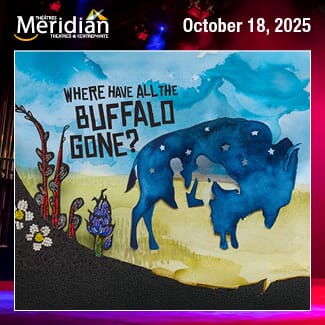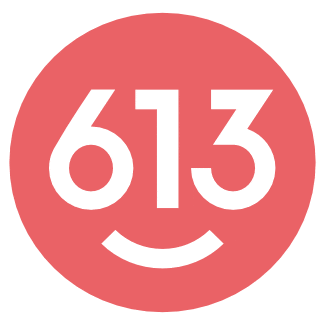Mādahòkì Farm is opening their doors to the wider public by introducing new visitor experiences, starting today.
Since their move in 2021 to replace the former Lone Star Ranch, Mādahòkì Farm has been welcoming students and businesses for group experiences around the 164-acre farm. They have also been known for their annual Summer Solstice Festival, which just happened last month on June 21-22.
As of July, the farm will be open from Thursday to Sunday, with programming available each day. Every Saturday will have open farm play for families looking to snuggle with some farm animals, and Sunday programming will include a tour of the farm and a dreamcatcher-making workshop. And perhaps the most fascinating: they are launching a Mishtadim Equine Assisted Learning (EAL) program, which allows visitors to experience endangered Ojibwe Spirit Horses first-hand.
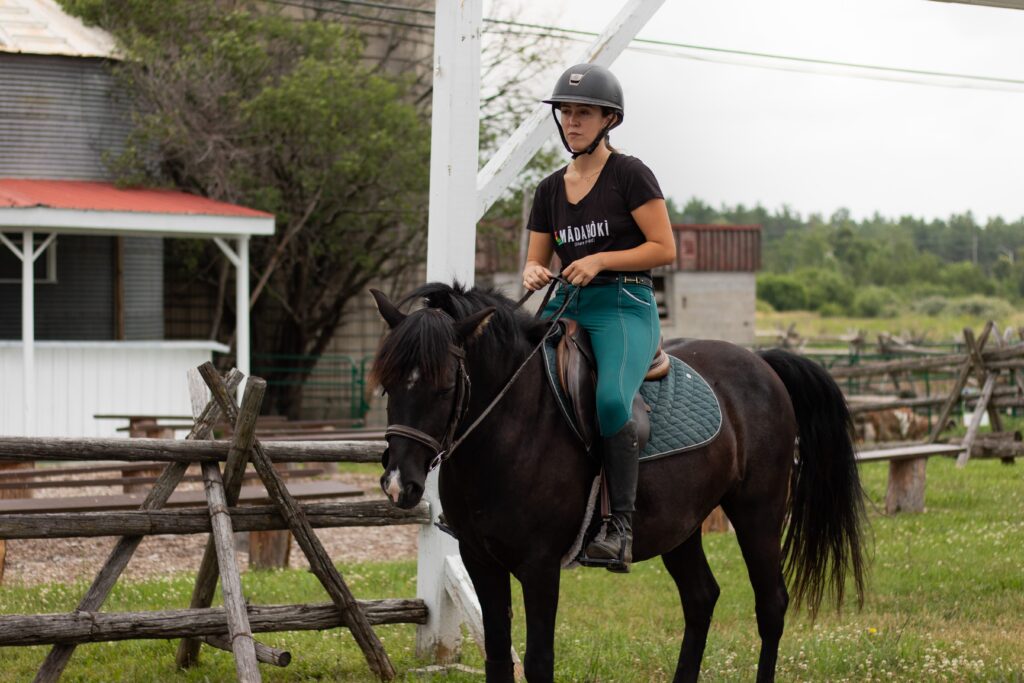
Kaya Mather-Simard riding Mukwa. Photo: Daria Maystruk
These experiences range in prices, but the farm itself will still be free to explore with several trails available. Self-guided tours will also be more and more accessible come September: the farm is currently putting together a new augmented reality app, which visitors will be able to interact with as they explore and scan QR codes alongside trails.
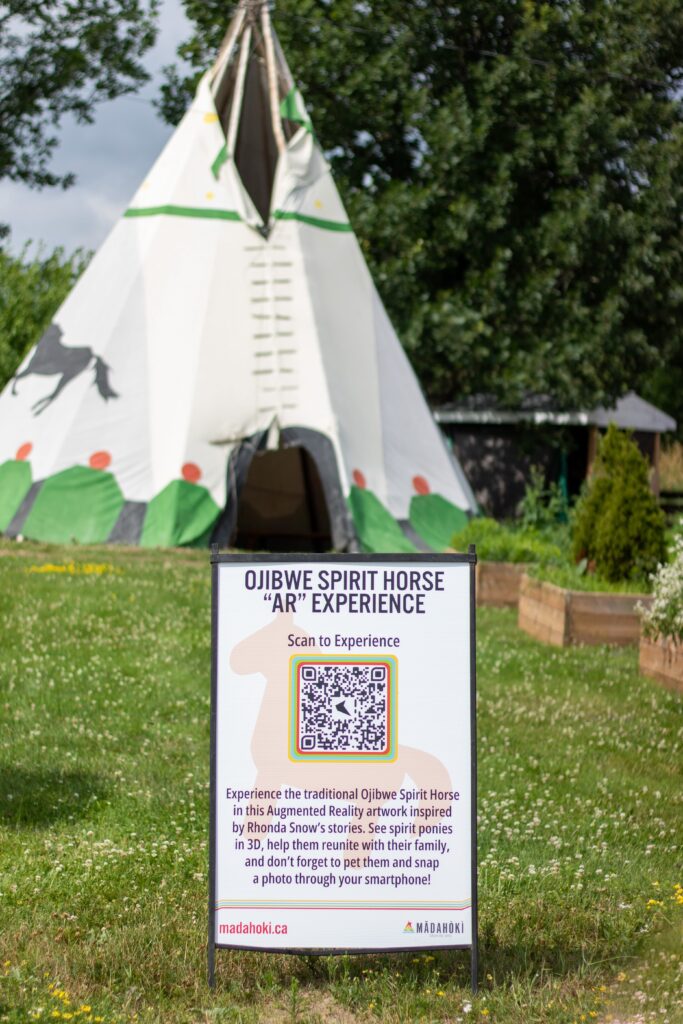
Photo: Daria Maystruk
I was welcomed to tour the farm with other media, take part in their new EAL program, and taste some new Grab & Go Indigenous offerings prepared by Mādahòkì Farm’s culinary team. It was my first time visiting the farm, but I immediately felt at home. The folks working there were incredibly welcoming and helpful, answering each question with knowledge and humour.
Starting off, we were offered some locally made Ziibiins Nibi wild berry chai sparkling water and cedar mint sparkling water, which was a refreshing delight in the humid weather.
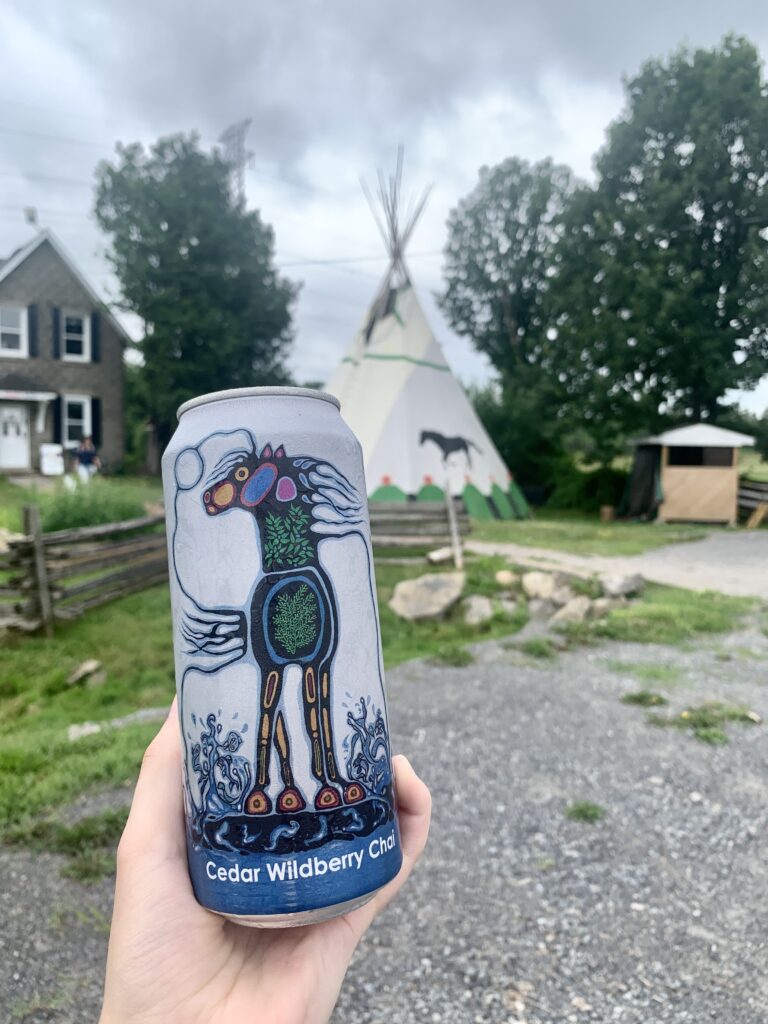
Photo: Daria Maystruk
With this in hand, we started our tour after a traditional welcome song performed by Stephanie Sarazin. She took us through the wigwams (homes) of different Indigenous communities, from the Plains Nation to the Haudenosaunee.
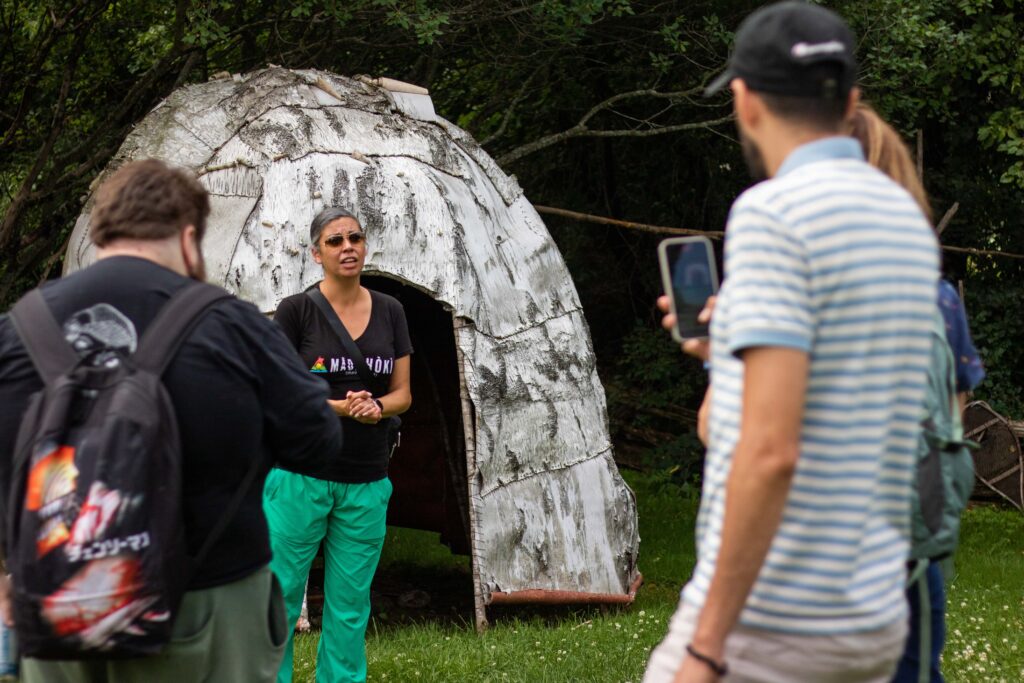
Stephanie Sarazin. Photo: Daria Maystruk
Then, the main event: Ojibwe Spirit Horses. The farm has been working on this program for the past two years with the help of the Trillium Foundation, according to Trina Mather-Simard, CEO of Mādahòkì Farm. It was incredible to hear about the horses, their spiritual context, and just how much they are able to sense from people. The Ojibwe Spirit Horse is the only known Indigenous breed of horse to Canada, and they are built smaller for Canadian forests. There are currently only about 180 registered Spirit Horses today, as breeding programs continue to rebuild the once nearly decimated wild population.
We had two spirit horses joining us in the barn, and they seemed calm as we were a fairly relaxed crowd. Each of us greeted them one by one, letting them react to our energies as we brushed them and led them around the barn. As someone who had never been up close to a horse before, I would definitely recommend this encounter to others!
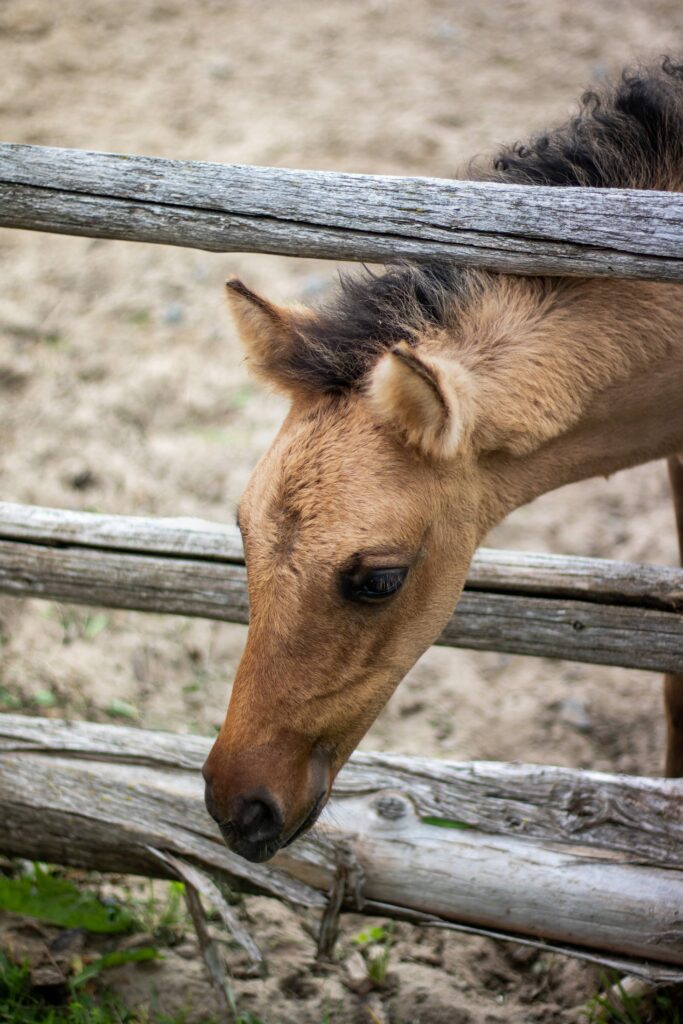
Nesewin, meaing “air” or “to breathe,” is a young filly at the farm. Photo: Daria Maystruk
Finally, we were treated to some Indigenous foods like bannock, wild rice, and bison chilli (which was super tender and delicious). Everything tasted fresh, and you could tell it was grown and cultivated with care. The food will now also be sold at the Indigenous Market, with vegetarian options available too.
Mādahòkì Farm is located at 4420 W Hunt Club Rd. For more program and pricing information, visit the Mādahòkì Farm website.


